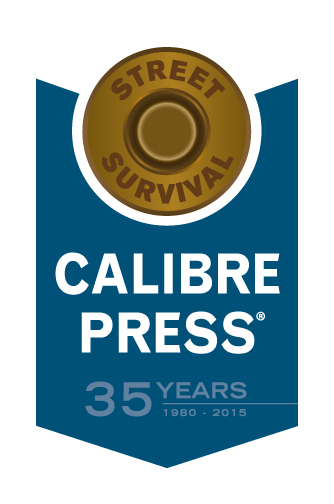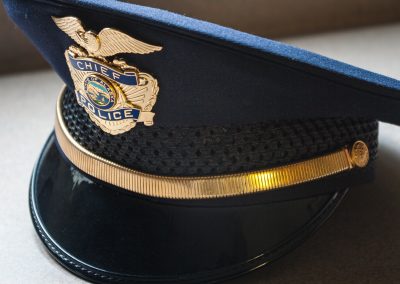Author’s Note: One of the keys to the success of Calibre Press is an appreciation of where it comes from. Although there have been several owners over the years, Chuck Remsberg—one of the original founders, along with Denny Anderson—remains active in police training and remains a guiding presence in this profession. Although Calibre Press is now and for the first time owned and operated by a police officer, Jim Glennon, it’s remarkable to note that Remsberg was a freelance journalist when he and Anderson changed police culture so profoundly with the publication of the book Street Survival back in 1980. I decided to speak with Chuck, who is now editor in chief of the Force Science newsletter, to be reminded of how it began.
Calibre Press is now 35 years old and one of the most trusted names in law enforcement. How did this all get started?
After writing a lot of true-crime stories as an independent journalist, I developed some assignments working on 16-mm police training films that were produced by a subsidiary of Motorola. Primarily I wrote the supporting print materials that helped trainers use these films effectively.
 Denny Anderson was on their staff as producer and director of these projects, which included topics such as hostage negotiation, safe firearms handling, and bank scams.
Denny Anderson was on their staff as producer and director of these projects, which included topics such as hostage negotiation, safe firearms handling, and bank scams.
One of the films we worked on in about 1976 was called Survival Shooting Techniques. That was the first instructional film to address officer survival tactics in detail—a ground-breaking subject at the time, since there was very little institutional training in officer safety.
And that led to Calibre Press?
Basically. Denny and I had so much research material left over from the movie that we felt needed to get out there to help officers stay alive. So we decided to create and publish a book that we called Street Survival: Tactics for Armed Encounters. We included nearly 500 photos—cops are very visual learners—and text that was practical and realistic. We wanted an officer reading the book to be able to begin applying its tactics on his or her very next shift.
You have to understand that the climate at the time at most police agencies and academies was very fatalistic: “If your number’s up, it’s up” was the attitude, with very little offered about how you could improve your odds. Our message that there was a lot you could do on your own really resonated with patrol officers. Many officers told us that they took the book with them and read it in their patrol cars.
For Calibre’s first year, the company was based in my house. Cops would call up at 2 or 3 in the morning to order the book and I’d jump out of bed to talk to them!
How did the book publishing business become a training company?
It evolved from a very humble start. I got a call at a party one night from an officer in Lansing, Illinois, who’d read the Street Survival book. He’d called my house and the babysitter gave him the number to reach me. He wanted Denny and me to come out some evening and talk to his buddies about tactics. It was pretty much a nightmare. A handful of big cops were crammed into tiny kid-size chairs at a local grade school, and when we got there after a long drive we realized we’d forgotten the films and slides we’d intended to show. We winged it, but it was a very disheartening drive home.
But later some of the officers present talked to other officers and soon we were invited to do a couple of day-long programs in another Chicago suburb. Then a few weeks after that an officer from Youngstown, Ohio, called in a panic because he’d just had a visiting trainer cancel out on a two-day presentation. Would we be willing to fill in?
We worked up a program based largely on the book, and to our amazement, 300 cops showed up from eight different states.
After that, we were in the Street Survival Seminar business. It just took off.
Tell me about the Street Survival Newsline and how that got started.
In 1995, when electronic communication was still in its infancy, Calibre’s marketing director Scott Buhrmaster [now vice president of operations at Force Science] had managed to collect the email addresses of 25 officers. During an office bull session with Scott one afternoon about new opportunities that email might open up, the idea emerged to send an article of tactical interest to these 25 and see what happens.
On Nov. 14, we transmitted a free, seven-paragraph report on safety tactics for bicycle patrol to this core group. The Newsline was born—the first electronic newsletter devoted to law enforcement training. Before long, we were doing two to three transmissions a week to officers throughout the world.
What does the future hold?
I see a couple of major challenges.
First, thanks largely to the work of Dr. Bill Lewinski and the Force Science Institute, I think we are going to see a much more scientific approach to the training of law officers and to the defense of officers when their uses of force are challenged. Deeper knowledge of how force encounters and officer performance are influenced by biological, psychological, and physiological factors will in time very likely revolutionize law enforcement training.
Equally important, I think, is the need to educate the civilian world—including the media, politicians, and members of the judicial system—on the realities of force applications. Currently, because of widespread misunderstandings about the true dynamics of force encounters, the public often has unrealistic and damaging expectations of police officers.
With better education, hopefully, will come stronger support for law enforcement and we can reverse the sad state of morale that seems to be growing among officers, as revealed recently by your poll on how cops view their profession these days. Policing is a noble profession, and more people need to understand that.










0 Comments